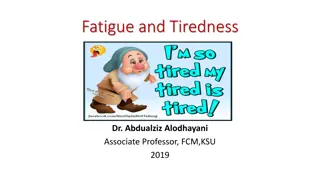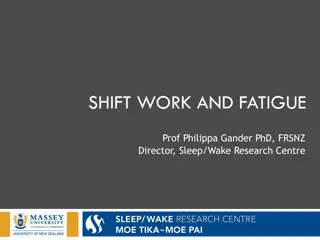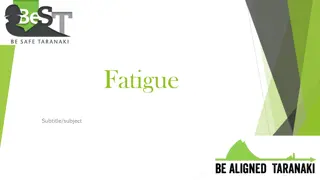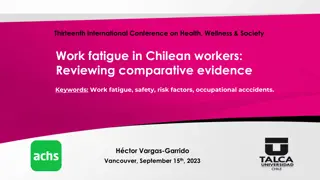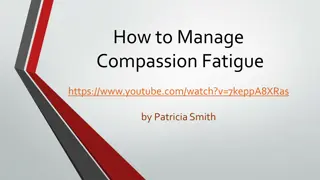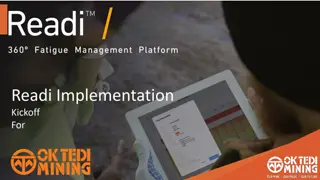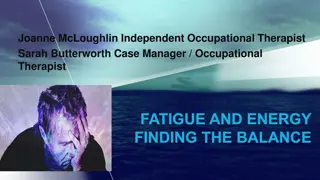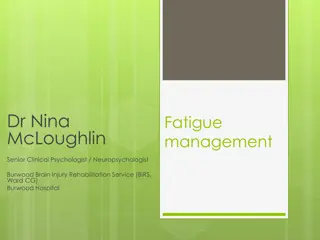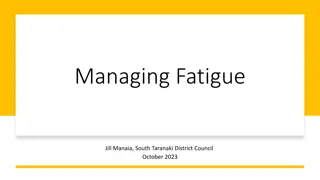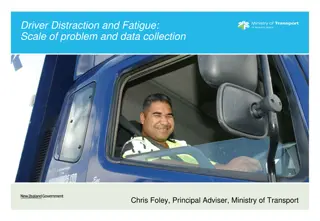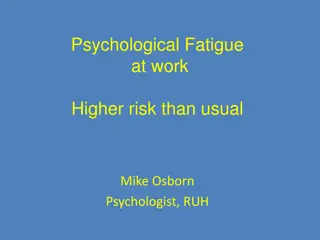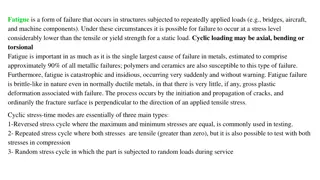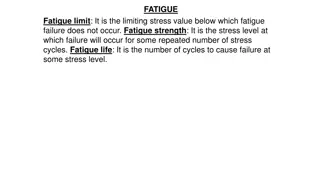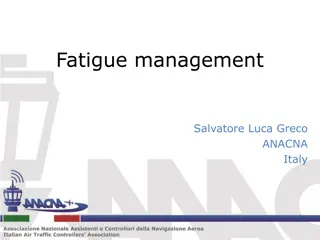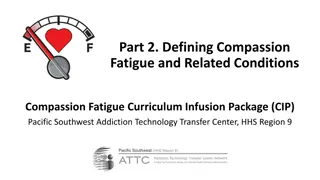Strategies to Address Mental Fatigue at Work
Learn how to tackle mental fatigue at work by understanding the brain's energy consumption, the importance of breaks, and the benefits of stretching employees in areas of skill. Discover the positive impact of coaching, dealing with ambiguity, and fostering leadership positivity for increased job satisfaction, engagement, and performance.
Download Presentation

Please find below an Image/Link to download the presentation.
The content on the website is provided AS IS for your information and personal use only. It may not be sold, licensed, or shared on other websites without obtaining consent from the author. Download presentation by click this link. If you encounter any issues during the download, it is possible that the publisher has removed the file from their server.
E N D
Presentation Transcript
Mental Fatigue at Work why and strategies to address
Engaged Wellbeing Resilience Values and meaning Give Contribute to others Use and develop your strengths. Keep learning Development Keep learning Connect, stay tuned in, use your sense of humour Community Connect with others Performance Stretch yourself Take advantage of your strengths Take notice Be active Be active Leaders positivity Take care of yourself www.strategicpeoplegroup.nz
Overview The brain - more like a muscle than we think Stretch versus stress Leaders coach Dealing with ambiguity www.strategicpeoplegroup.nz
Our Brain A big consumer of energy Even rumination takes energy It needs breaks, recreation and sleep www.strategicpeoplegroup.nz
Stretch vs Stress Flow is achieved when you stretch people in areas they are skilled in Goal of the activity clear (and is meaningful), they have time and feedback is ongoing People want to go home feeling they have accomplished something that is a good day. www.strategicpeoplegroup.nz
Leaders Coach! People coached report Attempting increasing challenging job demands Being more engaged and happier Having lower levels of stress People interacting with those being coached are also happier - the coaching ripple effect. In NZ the frequency of catchups has increased from every 13 to 6 every weeks. www.strategicpeoplegroup.nz
Dealing with ambiguity Stockdale Paradox Helping our people use their strengths Helping our people see their work matters Be in a good headspace ourselves www.strategicpeoplegroup.nz
Leaders Positivity Employee Performance Job Satisfaction, engagement and performance Well-being and enrichment of families Unit Performance Cohesion, team learning orientation, and Experimentation/ Innovation and Performance www.strategicpeoplegroup.nz
Conclusions The brain is like a muscle and you need to look after it! It needs breaks We like to be stretched and to achieve - coaching helps stretch us and prioritise Meaning and confidence helps in our perceptions of ambiguity www.strategicpeoplegroup.nz
simply better The work we do has its roots in positive psychology. The tools and techniques that have been developed from this research are simple to come to grips with and resonate strongly with managers and staff. Despite being simple, they are well-researched and have substantial empirical backing showing impact on engagement, innovation, collaboration, happiness, resilience and individual wellbeing. Put simply, our focus is on making things better. Whether it be with individuals or with organisations. Our approach has demonstrable and positive impacts on the way things work - making people more effective in their leadership, and organisations more innovative, customer focused, safer and productive. We relish the opportunity to see people and organisations develop to their full potential.


